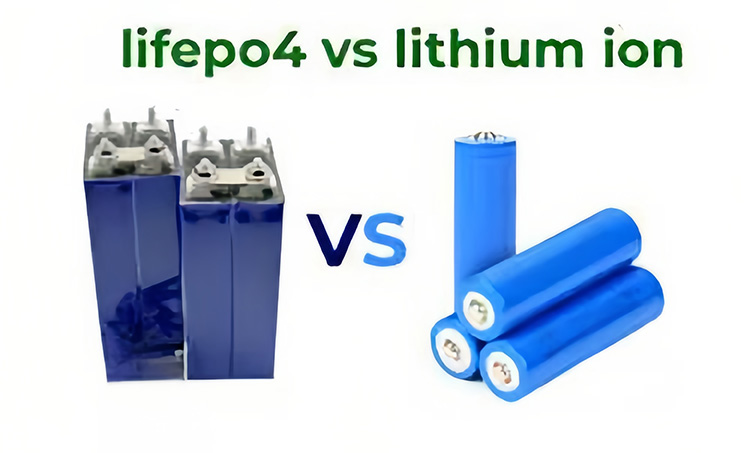General News
Solar Battery Types: LiFePO4 vs. Lithium-Ion
When choosing solar batteries for your energy system, understanding the differences between LiFePO4 and Lithium-ion is essential. Both types of batteries are popular in solar applications, but they have unique features that suit different needs. This guide will help you understand their benefits, drawbacks, and use cases.
What Are LiFePO4 Batteries?
LiFePO4, also known as lithium iron phosphate batteries, is a type of rechargeable battery. They are known for their long lifespan, high safety standards, and excellent thermal stability. These batteries are a preferred choice for solar energy systems due to their reliability and low maintenance needs.
Key Benefits of LiFePO4 Batteries:
- Longer Lifespan: LiFePO4 batteries can last over 4,000 cycles, significantly outlasting many other battery types.
- Safety and Stability: These batteries have a lower risk of overheating or catching fire compared to standard lithium-ion batteries.
- Consistent Performance: They perform well under high temperatures, making them ideal for outdoor solar systems.
- Eco-Friendly Composition: LiFePO4 batteries are less toxic and more recyclable than other lithium-based options.
What Are Lithium-ion Batteries?
Lithium-ion batteries are widely used in various industries, including solar energy. They offer high energy density, fast charging capabilities, and lightweight designs. These features make them versatile for both residential and commercial solar power systems.
Key Benefits of Lithium-ion Batteries:
- High Energy Density: Lithium-ion batteries store more energy in a compact size, making them space-efficient.
- Fast Charging: They charge faster than many other types of solar batteries, ensuring quick energy storage.
- Lightweight Design: Their lightweight construction reduces installation complexity and costs.
- Proven Technology: Lithium-ion batteries are a trusted technology with a wide range of applications.
LiFePO4 vs. Lithium-ion: A Direct Comparison
To choose the right battery for your solar system, it’s important to compare the key differences:
| Feature | LiFePO4 | Lithium-ion |
|---|---|---|
| Lifespan | Up to 4,000+ cycles | 1,000–3,000 cycles |
| Safety | Extremely safe, stable, and non-toxic | May overheat if not properly managed |
| Energy Density | Moderate energy density | High energy density |
| Weight | Heavier than lithium-ion | Lightweight and compact |
| Temperature Tolerance | High tolerance for extreme heat | Performs best at moderate temperatures |
| Cost | Higher upfront cost, lower long-term cost | Generally lower upfront cost |
Which Solar Battery Should You Choose?
Your choice depends on your specific energy needs, budget, and system requirements. Here’s a quick guide to help you decide:
- Choose LiFePO4 if you need a long-lasting, safe, and eco-friendly solution for your solar system. It’s ideal for off-grid setups or systems in hot climates.
- Choose Lithium-ion if you prefer a lightweight battery with high energy density for smaller systems or where space is limited.
Why Choose Baufar for Solar Batteries?
At Baufar, we specialize in providing high-quality solar batteries, including both LiFePO4 and lithium-ion options. Our products are designed for durability, efficiency, and long-term value. By choosing our solar solutions, you can enjoy reliable energy storage tailored to your needs.
Final Thoughts
Both LiFePO4 and Lithium-ion batteries are excellent choices for solar systems, but understanding their differences is key to making the best decision. Whether you prioritize safety, lifespan, or energy density, there’s a battery type suited to your needs. Explore our range of solar batteries at Baufar to power your journey toward sustainable energy.


